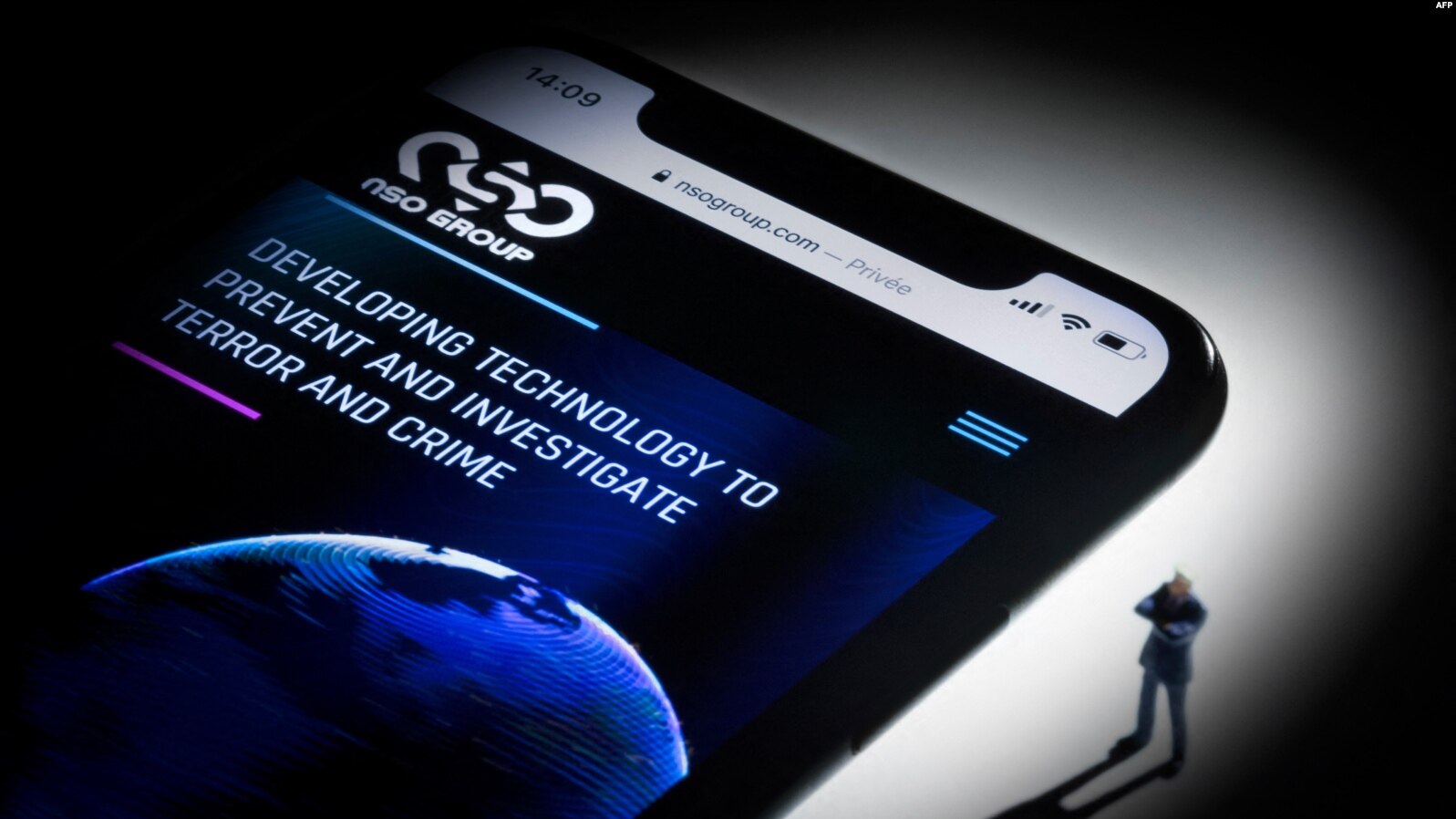Is the Intelligence Agency in Greece Spying on Citizens Through Israeli-Produced Programs?

Two weeks ago, Greek police raided the offices of Israeli spyware firms after the wiretapping scandal of the intelligence services in Athens, as dozens of Greek public figures had their phones hacked, according to Middle East Eye (MEE).
The offices of Intellexa, the Israeli-owned company behind the Predator spyware program, were targeted in Athens, in addition to the company executives’ homes. According to local reports, four other companies in Athens were also raided.
Greece’s political class has been embroiled in a massive scandal over revelations involving Predator spyware “found on the phones or computers of prominent journalists, the leader of one of the main opposition parties, dozens of ministers, military figures and business leaders,” according to MEE.
Raiding Israeli Spyware Firms
Athens police raided, on Tuesday, the offices of Intellexa, a smartphone cyber-espionage company, with the help of the Predator spyware, as part of investigations into the wiretapping scandal that has engulfed the intelligence services in Greece in the past several months. The company was founded by a former Israeli military intelligence officer, Tal Dilian, who headed a secret intelligence unit. Intellexa has become a competitor to the Israeli cyber-espionage company NSO, which has been embroiled in international scandals and blacklisted by the United States. Greek website, Kathimerini, reported that the police raid included the offices of six companies, including Krikel, an information and communications technology company and provider of electronic security systems.

Officers from the police cybercrime department also raided two other companies and targeted the homes of executives of six companies.
The Public Prosecution issued orders to carry out the raids after revealing documents and information a few days ago, including a report published by the Documento newspaper last Sunday, which stated that high-ranking Greek public figures, including current ministers, businessmen, and army officers, including the Chief of Staff The General of National Defense, Konstantinos Floros, has been subjected to cyber espionage.
Greece has recently witnessed a political scandal linked to Predator spyware after an investigative journalist revealed that his phone had been wiretapped by this program, and it later became clear that the phones of leaders in the Greek opposition parties were hacked too.
Intellexa is not subject to the oversight of the Israeli Ministry of Defense with regard to security exports.
The New York Times recently reported Greece had granted Intellexa a license to export Predator software to Madagascar.
Tal Dilian, Intellexa CEO, had moved his company’s offices from Cyprus to Greece after being pursued by the Cypriot security services and then established a network of companies operating in the same field.
Wiretapping Scandal
Intellexa operates through its subsidiary Cytrox, registered in North Macedonia and operates from Greece, having been founded and owned by Tal Dilian, the former head of the secret Israeli intelligence unit known as Unit 81.
This Israeli surveillance firm operates in dozens of countries and sells spyware to the highest bidder. Dilian is widely believed to live in Cyprus and founded the company in 2019 as a shadowy surveillance technology company.
In October 2022, the first lawsuit was filed against Intellexa in Greece, demanding a criminal investigation into the company.
Earlier this year, an investigation by the European Parliament found that Israeli-made spyware is being widely used in Greece against the country’s political class, calling it “a major problem for democracy and the rule of law.”

The Greek opposition newspaper, Documento, reported in April 2022 that Greek intelligence had spied on the phones of a number of senior Greek politicians and other citizens.
The newspaper published the fourth list of the names of the persons who were wiretapped, namely, “the Chief of the General Staff of the Greek National Defense, Konstantinos Floros, and the Chief of the General Staff of the Land Forces, Charalampos Lalousis, in addition to nine other people who hold key government positions, heads of government departments, members of the European Parliament, and journalists.”
The newspaper added, quoting Greek Prime Minister Kyriakos Mitsotakis, that the intelligence service used the Predator spyware.
The phones listed were of the former director of the Department of Armaments, Theodoros Lagios, a member of the European Parliament for the PASOK – Movement for Change, Eva Kaili, and Panayotis Kanellopoulos, a member of the Executive Committee of the MYTILINEOS group of companies, and the former CEO of Enterprise Greece, Georgios Filiopoulos, in addition to journalist and politician Giorgos Tragkas, who died in December 2021, and advisor to the Prime Minister and former head of the Stavros Niarchos Foundation, Giannis Zervakis.
In a statement issued after the disclosure of the new lists, the Radical Left Party called on Prime Minister Mitsotakis and Prosecutor General Vasiliki Vlachou to provide “clear answers” in this case.
For his part, the Greek government spokesman, Ioannis Economou, confirmed that the Documento’s journalist, Kostas Vaxevanis, continues to spread his myths relentlessly and that Vaxevanis’s account is a mixture of unsubstantiated allegations and that his lack of evidence and facts drives him to delinquency.
He added that the Greek government had submitted a draft law to parliament, providing for the abolition of confidentiality of communications, cyber security, and the protection of citizens’ personal data.
He explained that this law would enhance the rights of citizens in the face of the threats of technological development, as deficiencies have been identified in the legislative framework stipulated since 1994, and it is being updated.

How Does It Work?
After the spying scandal in Greece, attention turned again to the thriving commercial spyware industry market dominated by “Israel,” especially because of its internationalization causing chaos on the global level from time to time after it got out of control.
In a detailed report dealing with the issue of the spyware industry, on December 10, 2022, the New York Times revealed that Israeli spyware is used by governments, allowing the hack of mobile phones and data, and many of them continue to misuse such programs, despite US government public stance last year that was against the inappropriate use of spyware software to target activists, Human rights organizations, dissidents and journalists.
Steven Feldstein, an expert at the Carnegie Endowment for International Peace in Washington, has documented the use of spyware by at least 73 countries.
“The penalties against NSO and its ilk are important,” he said. “But in reality, other vendors are stepping in. And there’s no sign it’s going away.”

Commercial spyware is used by intelligence agencies and police forces to hack phones used by drug networks and terrorist groups. But at the same time, it has been misused by authoritarian regimes and democracies to spy on political opponents and journalists, like the recent incident in Athens.
For over a decade, NSO Group has sold its popular Pegasus software to law enforcement agencies worldwide.
The Israeli government required the company to obtain licenses before exporting its spyware to a designated law enforcement or intelligence agency, allowing the government to gain diplomatic leverage over countries eager to buy Pegasus.
With this next generation of companies, technology that was once in the hands of a small number of nations is now everywhere—changing the landscape of repressive governments and regimes spying on their own citizens and their competitors as well.

Amid the political scandal in Athens over the use of spyware against politicians and journalists, The New York Times reported that the Predator hacking tool sold by Israeli Intellexa and being used in dozens of other countries since 2021 proved continued demand among governments and the lack of strong international efforts to curb the use of such programs.
While Predator requires the targeted user to click on a link to “infect” their phone, the more advanced Pegasus has “zero-click” technology, which means it can surreptitiously and remotely take everything from the target mobile phone, without the user having to click on a “malicious link.” It is worth noting that zero-click hacking tools, which are much cheaper, also have a large market.











